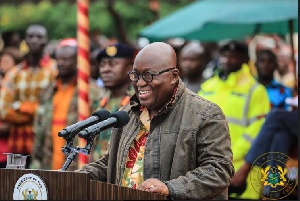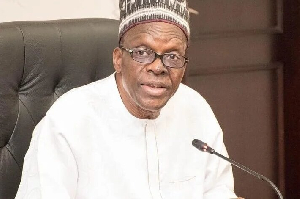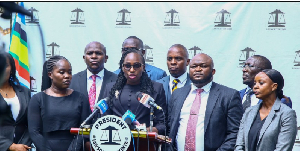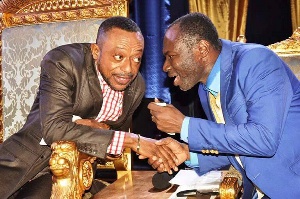President Akufo-Addo says his administration will improve the ailing economy inherited from the previous National Democratic Congress (NDC) administration in 2016.
Speaking at the annual Delegates’ Conference of the New Patriotic Party (NPP) over the weekend in Koforidua, the President said Ghana would complete its extended credit facility (ECF) programme with the International Monetary Fund (IMF) this year.
“Our economy is on a good course, and it will mean that when we finish with the IMF programme this year, our economy will be stronger than the one we inherited.”
He said his administration posted an 8.5 percent GDP growth rate in the first year of its mandate, and that there was every indication that it would repeat that this year.
“Indeed, the IMF is saying that we could have the fastest growing economy in the world this year, and that our prospects for positive growth are good.
“We have brought the unsustainable fiscal deficit down from 9.3 percent in Mahama’s last year to 6 percent in 2017. We will get it further down this year. The rate of inflation has improved from 15.4 percent – we are now in single-digit figures.
“The cedi is a more stable currency, despite its recent challenges. We have begun to restructure our debt to give us greater fiscal space. I know there are some who think these figures are meaningless. They are wrong. The figures point to a growing, stronger macro-economy.”
President Akufo-Addo gave credit to members of government’s economic management team, which is chaired by Vice President Dr Mahamudu Bawumia, and stated that government has begun to revive Ghana’s agriculture with the ‘Planting for Food and Jobs’ programme.
“Last year, 200,000 smallholder farmers were in the programme, which provided them with subsidized, improved seeds and fertilizers, extension officers, who had previously been non-existent.”
He mentioned that “the result was an increase in the production of maize from 1.9 metric tons per hectare in 2016 to 3 metric tons per hectare in 2017, an increase in the production of rice from 2.7 metric tons per hectare in 2016 to 4 metric tons per hectare in 2017, an increase in the production of soya, from 1.2 metric tons per hectare in 2016, to 2.5 metric tons per hectare in 2017 and an increase in the production of sorghum from 0.8 metric tons per hectare in 2016 to 1.8 metric tons per hectare in 2017.”
He said that this year, the programme would be extended to embrace 500,000 farmers, indicating that government’s target is one million farmers by the end of its four-year term.
“We are going to change the face of Ghanaian agriculture. We have finally established the Development Authorities and the Zongo Development Fund to address questions of infrastructure at the grassroots. We are ready to roll out the One District, One Factory initiative, and construction has begun in parts of the Northern Regions for the One Village, One Dam project.
“The revitalization of our railway system is going full-steam, and we are about to witness significant road developments. The 100,000 strong Nation Builders’ Corps has been launched to tackle graduate unemployment.”
Click to view details



Business News of Wednesday, 11 July 2018
Source: dailyguideafrica.com

















